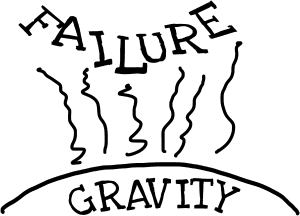 3The Gravity of Failure and Failure's Gravity
3The Gravity of Failure and Failure's Gravity
A Universal Force
Most new products fail, most new businesses fail, most mergers and acquisitions fail, most big IT projects fail—and that's just a partial list of the endeavors on the most-likely-to-fail list. Add to that the endless array of less likely but still frequent failures: new hires or promotions that don't work out, ad campaigns that fizzle, stores that close, strategies that falter, new policies that backfire. You get the picture. In fact, when you think about all the failures we live with day-to-day, it's amazing anything significant or lasting ever gets done.
As we thought about this landscape of failure, we struggled to find an appropriate analogy or metaphor to capture its ubiquity, its pervasiveness, and, perhaps, its inevitability. Finally, we hit upon one: Failure is like gravity.
It is all around us all the time. It's an inexorable and unavoidable fact of life, one we ignore at our peril. It affects virtually everything we do or try to do. The gravity of failure limits and, in a profound sense, humbles us, whether we acknowledge it or not. But it's also the gift that keeps on giving, because it often contains the very seeds of the success we so desperately want—if only we can unlock its secrets.
As much as we might like to deny or defy it, we (and the organizations we work in) spend most of our respective lives ...
Get The Other "F" Word: How Smart Leaders, Teams, and Entrepreneurs Put Failure to Work now with the O’Reilly learning platform.
O’Reilly members experience books, live events, courses curated by job role, and more from O’Reilly and nearly 200 top publishers.

